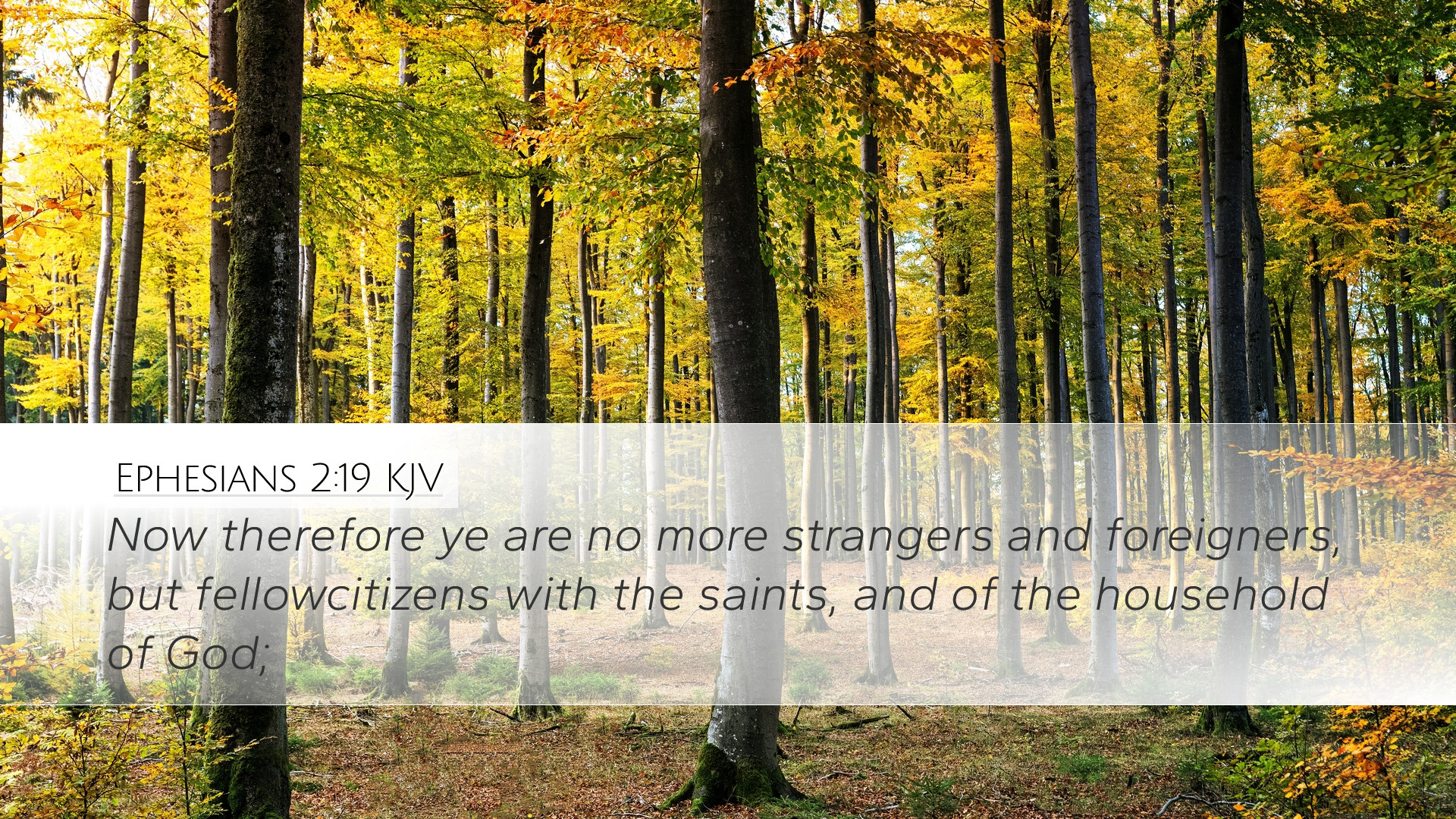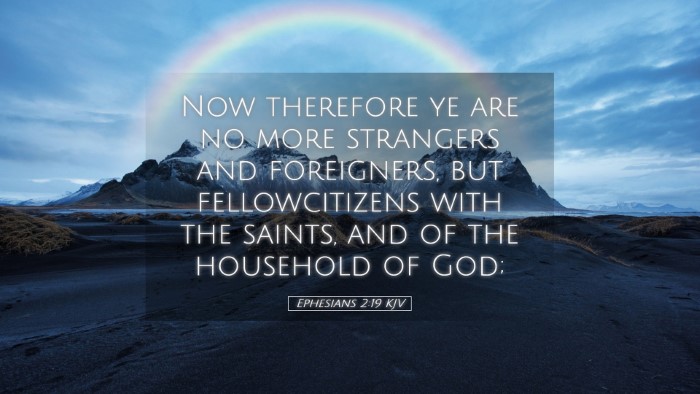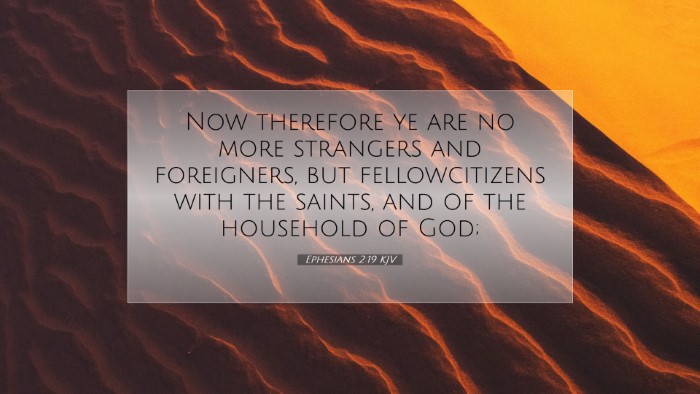Ephesians 2:19 - Commentary
Verse: “Now therefore ye are no more strangers and foreigners, but fellow citizens with the saints, and of the household of God;”
Introduction
Ephesians 2:19 marks a crucial transition in Paul's epistle to the Ephesians. The Apostle Paul elaborates on the profound change that Christians undergo through their faith in Christ. Gone are the barriers that once existed between Jews and Gentiles; in Christ, all believers are united as members of God's household. This commentary seeks to explore the implications of this verse, drawing insights from esteemed public domain commentaries.
Contextual Analysis
In the preceding verses, Paul outlines the richness of God’s grace demonstrated through salvation. He emphasized that all believers were previously dead in trespasses and sin but have been made alive through Christ (Ephesians 2:1-5). The “therefore” in verse 19 indicates a conclusion drawn from his earlier arguments about grace and unity.
The Transition from Strangers to Citizens
Paul contrasts the former status of believers as “strangers and foreigners” with their new identity as “fellow citizens.” This transformation is pivotal.
- Strangers and Foreigners: Here, Paul uses terms that evoke the image of outsiders in a societal context. Strangers refer to those who lack rights and privileges; foreigners denote those who exist outside the community. Paul reminds believers that they were once alienated from the promises of God.
- Fellow Citizens: In Christ, a radical change occurs. Paul emphasizes equality and inclusion in the Kingdom of God, where both Jews and Gentiles become equal participants, sharing in the blessings of His grace.
Theological Implications
The significance of this verse extends beyond mere identity; it speaks to the nature of the church and its mission.
- Unity in Diversity: Paul articulates a profound theology of unity through Christ. The barriers of race, culture, and status are demolished, calling believers to embody unity and peace as they represent God’s household.
- Identity and Belonging: The phrase “household of God” conveys a familial aspect, suggesting that believers share not only a citizenship but also an intimate relationship as children of God. This inclusion invites a deeper understanding of belonging within the community of faith.
Insights from Commentaries
Matthew Henry’s Commentary:
Henry points out that as “fellow citizens,” believers are partakers in the privileges and responsibilities of the heavenly kingdom. He emphasizes that this citizenship is not earned but freely given through the grace of God. Additionally, Henry underscores that the church is not merely an assembly but rather a divine household, drawing attention to the sanctity and communal nature of Christian fellowship.
Albert Barnes’ Notes on the Bible:
Barnes elaborates on the metaphor of citizenship, highlighting its implications for the nature of belonging to God's Kingdom. He notes that the transition to fellow citizens entails a change in status and emphasizes the significance of being part of a community where fellowship and mutual support are paramount. Barnes reflects on the relational aspects of being “of the household of God,” asserting that it involves shared responsibilities and privileges within this sacred family.
Adam Clarke’s Commentary:
Clarke provides a detailed exposition on the social and historical context of Paul's message. He highlights the importance of the term “household,” which denotes intimacy and care among believers. Clarke reinforces the idea that this verse speaks against division, advocating for a united front in the face of societal and cultural disparities. He also reflects on the role of the church as a spiritual entity designed to foster acceptance and love among diverse believers.
Practical Applications
In light of this rich theological concept, several practical applications emerge for pastors, students, theologians, and scholars:
- Embrace Unity: The church must actively work to embrace unity within the body of Christ, fostering an environment where all believers, regardless of background, feel welcomed and valued.
- Foster Relationships: Understanding the church as the household of God necessitates promoting deep, authentic relationships among congregation members, reflecting the love and acceptance that God extends to us.
- Cultivate Citizenship: Believers are called to be active participants in the life of the church, contributing to the community while drawing strength from one another.
- Impact Society: As citizens of God’s Kingdom, believers should be agents of change, addressing societal issues with the love of Christ and promoting justice and mercy within their communities.
Conclusion
Ephesians 2:19 encapsulates the transformative power of the gospel that unites believers into one body, establishing them as fellow citizens in the household of faith. Through the insights gleaned from esteemed commentaries, we are reminded of the weighty implications of our identity in Christ. Pastors, students, theologians, and scholars alike are called to live out this truth, fostering unity, belonging, and active participation in the vibrant life of the church.


